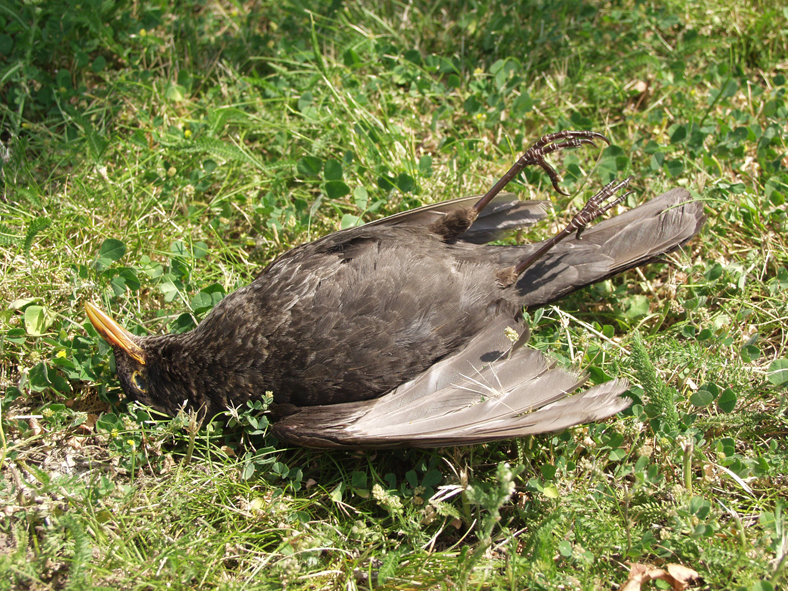Mysterious Virus IDed in Bizarre Bird Deaths

Get the world’s most fascinating discoveries delivered straight to your inbox.
You are now subscribed
Your newsletter sign-up was successful
Want to add more newsletters?

Delivered Daily
Daily Newsletter
Sign up for the latest discoveries, groundbreaking research and fascinating breakthroughs that impact you and the wider world direct to your inbox.

Once a week
Life's Little Mysteries
Feed your curiosity with an exclusive mystery every week, solved with science and delivered direct to your inbox before it's seen anywhere else.

Once a week
How It Works
Sign up to our free science & technology newsletter for your weekly fix of fascinating articles, quick quizzes, amazing images, and more

Delivered daily
Space.com Newsletter
Breaking space news, the latest updates on rocket launches, skywatching events and more!

Once a month
Watch This Space
Sign up to our monthly entertainment newsletter to keep up with all our coverage of the latest sci-fi and space movies, tv shows, games and books.

Once a week
Night Sky This Week
Discover this week's must-see night sky events, moon phases, and stunning astrophotos. Sign up for our skywatching newsletter and explore the universe with us!
Join the club
Get full access to premium articles, exclusive features and a growing list of member rewards.
They were dropping like flies.
One by one, the blackbirds started dying, with no obvious cause. That year, 2001, the birds completely disappeared from the city of Vienna.
The bird population rebounded a few years later, but meanwhile, researchers at the University of Veterinary Medicine, Vienna, started doing some detective work. The team initially suspected West Nile virus might have caused the blackbird die-off, but the tests weren't conclusive.
A closer look revealed the killer was a related pathogen called Usutu virus, but how it arrived in Vienna was a mystery. Now, the scientists have identified that the virus first appeared in Italy in 1996.
"This virus was not very well-known, because it had never been related to any disease," study leaderand pathologist Herbert Weissenböck told LiveScience. When it cropped up in 2001 in Vienna and other parts of Europe, "it was the causative agent of huge avian mortality," he said. [10 Deadly Diseases That Hopped Across Species]
Feathery surprise
Recently, Weissenböck and his colleagues at the University of Veterinary Medicine, Vienna, learned of a similar mass dying of blackbirds that took place in Tuscany, Italy, five years earlier, in 1996. At the time, the cause was unknown, but scientists at the University of Camerino saved tissue samples from the dead birds in paraffin wax.
Get the world’s most fascinating discoveries delivered straight to your inbox.
Weissenböck's team analyzed the samples and found the same strain of Usutu virus that had hit Vienna. "It was just a guess, because the major species in Italy had been blackbirds as well,"Weissenböck said.
The Vienna scientists sequenced the genetic material from the Tuscany samples and samples from infected Vienna birds, finding a match between the two viruses. A second test, using antibodies for the virus, confirmed the match.
Chasing a virus
The fact that the Usutu virus appeared in Italy several years before Vienna suggests the pathogen did not come directly to Vienna from Africa, as previously thought, but most likely came via Italy. The finding shows that when it comes to emerging viruses, initial ideas are sometimes wrong, Weissenböck said.
Usutu virus takes its name from the river in South Africa where it was first discovered in 1959. The blackbird-killer was not very well-known until its Vienna debut. The virus lurks in mosquitoes and birds, but birds are more likely to have brought it all the way from Africa to Europe. It doesn't seem to infect all birds though, only certain species, according to Weissenböck. Two infections have been reported in humans, he said, but both individuals had highly weakened immune systems.
"There are so many open questions concerning this virus," Weissenböck said. "It's a puzzle."
The findings are detailed in the February issue of the journal Emerging Infectious Diseases.
Follow LiveScience on Twitter @livescience. We're also on Facebook & Google+.

 Live Science Plus
Live Science Plus










